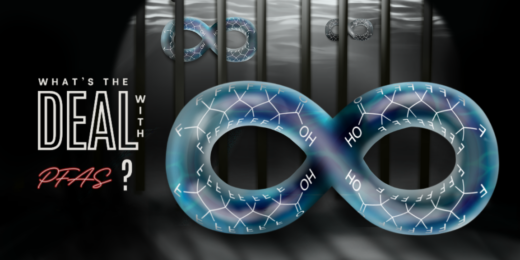Most reporters don't go into work thinking they're going to find a story that will occupy them for 17 years.
But that's what happened to Barry Meier.
In 2001, a person serving on the board regulating Ohio's pharmacies called an editor at The New York Times to sound the alarm about a drug that appeared to be highly addictive despite company claims that it was resistant to abuse. The editor passed the tip to Meier, who began reporting his first story about OxyContin, a prescription narcotic manufactured by Purdue Pharma.
"I had no idea what a narcotic is. I had no idea what a painkiller is," Meier said. He picked up the phone and started making calls.
Those phone calls planted the seeds for newspaper reports -- and then a book -- on the tangled business, medical and law enforcement dynamics of what would balloon into a national crisis of addiction, overdose and crime related to opioids. Published in 2003, the book, Pain Killer, was updated and expanded earlier this year.
Meier recently discussed the complex journey with Paul Costello, Stanford School of Medicine's chief communications officer, at a recent Health Policy Forum.
"I had no idea this would become the catastrophe -- or the scope of the catastrophe -- that it's become," Meier told the audience. He added:
It's very disheartening in many ways to see, not just what I wrote about... but all the other warning signs that were driven through, all the other yellow lights that were missed, all the red lights and stop signs that were ignored, by not just drug companies, but by doctors, by public health officials, by lawmakers, by the justice department.
Doctors and drug companies had good intentions when they began looking for better treatment options for patients with chronic pain from non-terminal conditions, such as arthritis and headaches, Meier said. Arriving on the market in 1996, OxyContin appeared to fill that need. Purdue claimed patients taking a moderate dose for long periods of time would not experience withdrawal when they stopped using the narcotic painkiller without tapering off, and that the time-released formula was less subject to abuse.
That was not the case. What's more, Meier's reporting for the Times and his book indicates that Purdue executives were aware of OxyContin's potential for abuse in early years, but did not inform others.
The company admitted misleading marketing tactics for OxyContin in 2007, when Purdue's parent company pleaded guilty to a federal criminal charge of misbranding the drug and agreed to pay $600 million in penalties. Additionally, three men who had served as top executives for the company each pleaded guilty to individual misdemeanor charges.
Meier told the audience that he later learned that prosecutors had originally wanted to charge the officials with felonies, but top Justice Department officials decided not to move forward with the recommendation. The prosecutors laid out the evidence for the weightier charges in a 120-page memo that Meier acquired about 18 months ago, he said. He wrote about it in a Times article published this year.
The decision not to pursue felony charges against the executives was a pivotal moment for the opioid crisis, Meier told the audience at Stanford:
Had this prosecution gone forward, had this trial gone forward -- even if these executives had been found innocent during this trial -- the evidence that these prosecutors would have brought to public awareness, to the awareness of doctors, public health officials, legislators, whomever, during the course of this trial would have been an awakening.
Now, Purdue Pharma faces numerous lawsuits from state and local governments, accusing the company of fueling the opioid epidemic through deceptive marketing of OxyContin. The Sackler family, billionaires who own the company, has been named in some of the suits.
While Meier acknowledged the importance of monetary compensation to defray the cost of medical treatment for people who are addicted, he said he hopes the lawsuits are not settled:
The thing that is most important right now, the thing that is going to have the most lasting effect on how medicine is practiced in the future and how public policy is practiced in the future is to have the entire truth of what these companies knew, how they behaved and the steps that they failed to take be made public.
There should be a final public accounting for the hundreds of thousands of lives that have been lost over the last 15 years.
Photo by PhotoLizM






